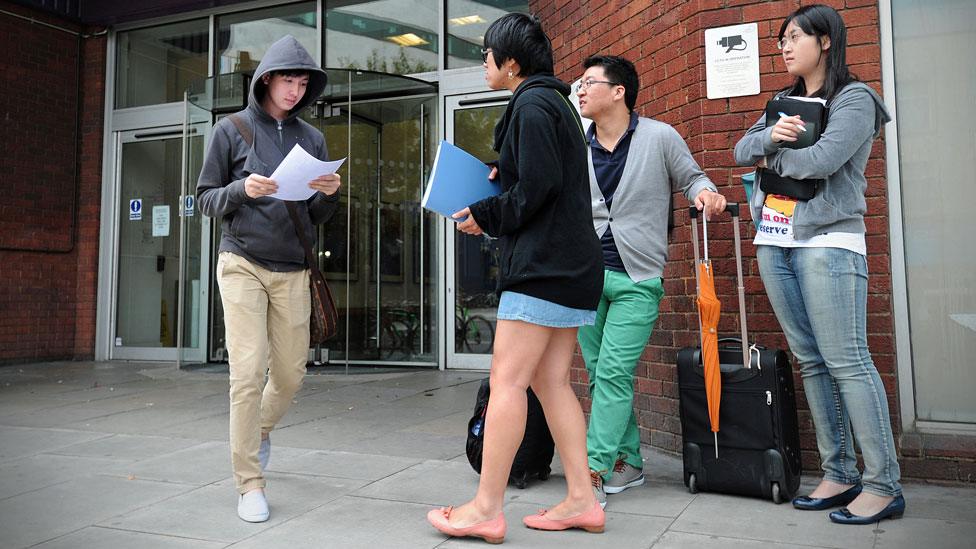Lancaster University opens Leipzig campus amid Brexit fears
- Published

Leipzig is a growing city in central Germany
Lancaster University is opening a campus in Germany in an attempt to protect itself from the "possible impact of Brexit".
The university will offer degrees, taught in English, for up to 2,000 students in Leipzig.
Deputy interim vice-chancellor, Prof Steve Bradley, said international staff unsure of their status after Brexit were "reassured" by the move.
The university teaches students from 100 different countries.
Prof Bradley said: "It will provide an opportunity to students in the EU and beyond who want a UK degree from a good university and who would have otherwise come to the UK."
He said the campus would give them a "foothold" in Europe but also help the university recruit students from India and China.

Universities say that the UK is slipping behind in attracting overseas students
The number of international students in the UK has been dropping partly due to the fact the UK no longer allows them to continue working in the country, following their graduation.
But Germany allows students to work for two years after their studies.
The Leipzig campus will teach degrees in business and management, accounting and finance, software engineering, and computing.
'Exciting prospect'
Lancaster is working with education provider, Navitas, to establish the campus but it will retain responsibility over all academic matters.
The university's vice-chancellor, Prof Mark E. Smith, added: "This will create Lancaster's first campus in mainland Europe - an exciting prospect and one which I hope will bring new opportunities to ambitious students."
The campus adds to Lancaster's existing overseas campus operations in Malaysia, China and Ghana and research partners in 60 countries.
The initial agreement is for 10 years with the first student intake expected in September for a foundation programme.
In October, Imperial College London signed a post-Brexit arrangement with the Technical University of Munich in which staff will be appointed jointly by both institutions, with the aim of keeping access to EU research funding for UK academics.
- Published10 October 2018

- Published4 September 2018

- Published19 July 2018

- Published11 January 2018

- Published2 July 2018
